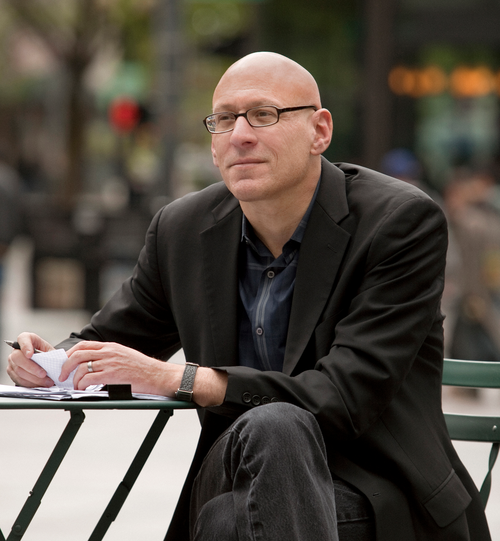
After about twenty-five emails back and forth, David Shields wrote to say he was flying into Los Angeles and that I should come by his hotel on Sunset to talk. We walked around the area for two hours–at one point trying to get into the Getty. (David Shields: Can we walk up to the Getty? Is the Getty open tonight? Security Guard: No sir. DS: I realize it’s closed, but can we walk up and see it? Security Guard: No, no, no.)
In Bookforum, Minna Proctor calls Shields’ latest book, How Literature Saved My Life, the heart to Reality Hunger’s mind–collage and storytelling which have come together to form “a giant, thrilling riddle.” When we spoke, Shields made clear that it’s important for him “not to be a bland admirer of general literary history,” and that “you’ve got to find those writers who speak to you.” For Shields, it “goes back to Heraclitus’ Fragments and comes through Maggie Nelson’s Bluets. And that,” Shields said, “is my tradition.”
– Hayden Bennett
I. THE ULTIMATE BOOK
THE BELIEVER: You re-use a lot of passages in your books–and re-use them from books that have re-used them. Do you view your work as evolving into one thing, like a hall of mirrors that you’re constantly trying to polish?
DAVID SHIELDS: I like that–an MC Escher kind of thing. I’m very interested in a whole series of artists who know they have one story to tell and they keep on telling it, trying to finally get that story right–Montaigne, endlessly revisiting the same essays; Munch’s Scream, which he painted over and over and over again; Monet’s water lilies. I’m terribly interested in having the reader feel, in a very direct way, how radically the story or the essay changes in its new context. I’ve been delighted by several reviews that have pointed out that I recycle, and that, given what my project is, it would seem very weird to criticize it.
BLVR: Right.
DS: In Reality Hunger, I was stealing, or pilfering, or remixing or sampling other peoples’ work for a very specific purpose. Namely, to try to show that the most exciting work exists in a difficult-to-name area, whether it’s slipperiness of genre, or provenance of quotation, or whatever. Well, in How Literature Saved My Life–of the 200 pages, maybe 20 of them are resampled from previous books, and to me, that really accomplishes a lot in trying to argue for the excitement of literary collage. A lot of my project is about trying to resist this idea of defining non-fiction downward. There’s this idea...
You have reached your article limit
Sign up for a digital subscription and continue reading all new issues, plus our entire archives, for just $1.50/month.
Already a subscriber? Sign in




